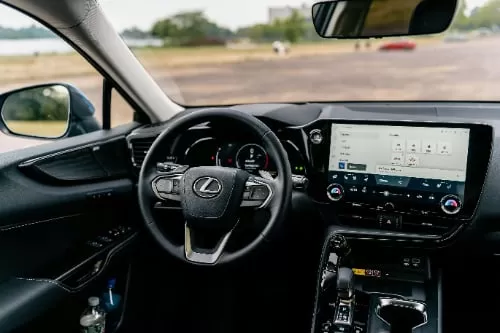A Comprehensive Guide For GPS Tracking: The Future of Fleet Management
In today’s transportation and logistics industry, GPS Fleet Tracking Systems have become essential for businesses managing commercial vehicles. A GPS Tracker for Fleet Vehicles provides real-time location tracking, optimizes routes, and improves efficiency. More businesses in the U.S. are adopting Fleet GPS Systems to reduce fuel costs, enhance safety, and comply with regulations. The demand for Fleet GPS Tracking Systems is increasing as companies seek to streamline operations and improve productivity. Leading Fleet Tracking Companies offer solutions for businesses of all sizes, making Commercial Vehicle Tracking more accessible and effective than ever before.
Related searches

5 Core Features of Fleet GPS Tracking Systems
Real-time Location Tracking
A GPS Tracker for Fleet Vehicles enables businesses to track vehicle locations instantly. This helps prevent unauthorized use, improves response times, and provides accurate delivery estimates.
Route Optimization
Fleet GPS Systems analyze traffic conditions to suggest the most efficient routes. This reduces fuel consumption, minimizes delays, and increases the number of daily deliveries.
Driver Behavior Monitoring
Fleet GPS Tracking Systems help monitor speeding, harsh braking, and idling, promoting safer driving habits and reducing accident risks.
Vehicle Maintenance Alerts
Commercial Vehicle Tracking solutions provide automated maintenance reminders based on mileage and engine diagnostics, preventing costly repairs and extending vehicle lifespan.
Data Analytics & Reporting
Leading Fleet Tracking Companies offer analytics tools that track fuel usage, driver efficiency, and compliance, helping businesses make data-driven decisions.
Top Fleet GPS Tracking Companies in the U.S.
Several Fleet Tracking Companies provide reliable Fleet GPS Tracking Systems. Popular providers include:
Samsara – Best for large fleets with AI-driven insights.
Verizon Connect – Ideal for mid-sized businesses needing route optimization.
Geotab – Offers strong analytics for data-driven companies.
GPS Insight – Customizable solutions for small businesses.
Motive (KeepTruckin) – Specializes in trucking compliance and safety monitoring.
Each provider offers unique features, making it important to compare options before choosing a GPS Fleet Tracking System.
Case Study: How a Logistics Company Cut Costs with Fleet GPS Tracking
A U.S.-based logistics company struggled with high fuel costs, inefficient routing, and frequent breakdowns. After adopting Fleet GPS Systems, they installed GPS Trackers for Fleet Vehicles, optimized routes, and set up maintenance alerts.
As a result, they reduced fuel costs by 25%, minimized downtime, and improved driver safety, demonstrating the real-world benefits of Fleet GPS Tracking Systems.
How to Choose the Right Fleet GPS System
Choosing the best Fleet GPS Tracking System depends on fleet size, budget, and feature needs. Small businesses may need basic Commercial Vehicle Tracking, while larger fleets benefit from AI-driven analytics. Comparing costs, scalability, and functionality ensures the right investment.
Future Trends: AI & Big Data in Fleet Management
AI and big data are transforming Fleet GPS Tracking Systems. AI-powered route optimization improves efficiency, predictive maintenance prevents breakdowns, and smart dash cams enhance driver safety. The future of Commercial Vehicle Tracking will include automation and real-time AI decision-making.
Conclusion
The growing adoption of Fleet GPS Systems is reshaping commercial fleet management. Investing in a GPS Tracker for Fleet Vehicles improves efficiency, reduces costs, and enhances safety. Businesses should compare Fleet Tracking Companies, start a trial, and integrate Fleet GPS Tracking Systems to stay competitive.

